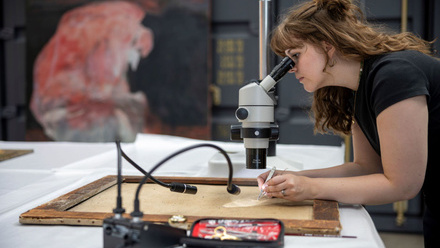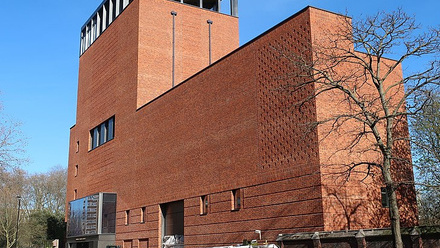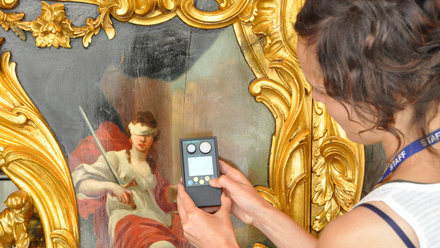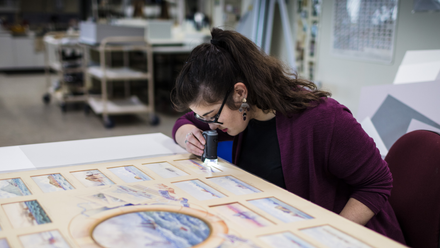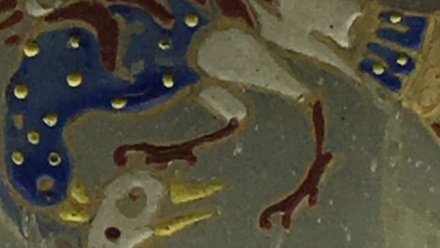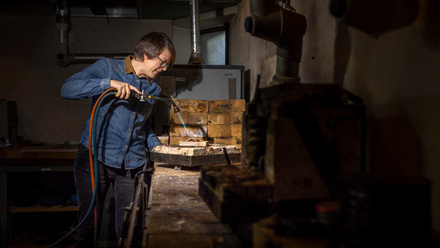Icon's Student Mentor Programme is offering students or recent graduates the chance for 1-to-1 support from an Icon Accredited Conservator. Mentees can discuss career planning, reflect on their options, and identify opportunities with experienced professionals.
Kate Berlewen writes about her experience with mentor Irit Narkiss ACR.
Discovering Conservation
My first experience in conservation was volunteering behind the scenes at my local museum. I struggled at school and had trained as an artist, working for several years in theatre design, set building, and other creative roles. I had always loved history and science though and taught myself a lot in my spare time. When I discovered the field of conservation, I knew pursuing a career as a conservator would allow me to combine my interest in science, love of history, and background in the arts, and I also realised it would mean throwing myself into the challenge of formal academic study.
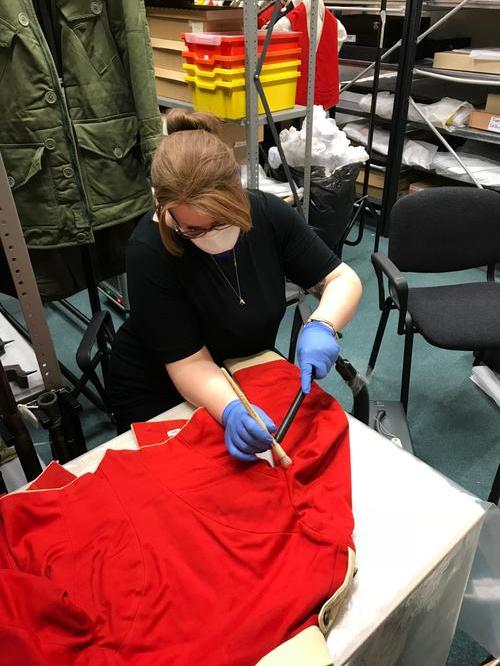
Volunteering with the Norfolk Museums Service in 2018. Image Courtesy of Norfolk Museums Service.
Studying Conservation
In September 2018, I started the MA in Principles of Conservation at University College London (UCL) and in 2019 I progressed on to the MSc in Conservation for Archaeology and Museums. Despite the difficulties of completing this course during COVID-19, I graduated in 2021 with a distinction; a fact my old school teachers might be surprised to learn, but proof that finding the right subject and the right learning methods for you makes all the difference.
It also helps that I was fortunate to have fantastic support during and following my MA and MSc, without which I could not have devoted myself to academic work and reached my full potential as happily as I did. I methodically applied to many small and large grants and scholarships, and was honoured to receive several scholarships including a Plowden Scholarship in 2019 and a COVID-19 practical placement grant, also from the Plowden Trust, in 2020.
I have also benefitted from the excellent Icon Mentorship scheme, as part of the first intake of mentees in 2021.
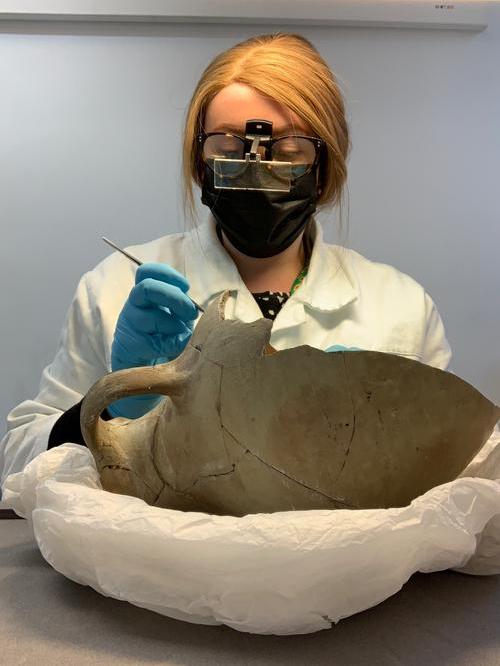
Icon's Mentorship Programme
Taking part in this program helped me navigate the first big challenge following graduation. Having come to academia later than some of my colleagues I found it daunting to view myself as ‘qualified’ and to confidently take the next step away from the training environment.
This doubt was something I hadn’t been expecting, but my wonderful mentor, Irit Narkiss ACR, helped me to work through it and encouraged me to apply for appropriate conservation jobs that I had both the skill and passion to pursue.
My confidence increased the more applications I completed, as I got used to presenting my skills and taking pride in the hard work I had done during my training. Irit also encouraged me to include the transferrable skills I had gained from my previous career in the arts, which helped me understand the diverse experience and expertise I could offer as a professional in a busy lab.
From Student...
During my last year at UCL, I undertook one of my two MSc work placements at the Royal Albert Memorial Museum (RAMM) in Exeter from October 2021 to January 2022. I specifically asked for the placement as I admired the museum’s ethos and the longstanding work they are doing in sustainability and repatriation, and because I knew from their well-publicised archaeological projects that they had a lot of fresh archaeology coming into the lab.
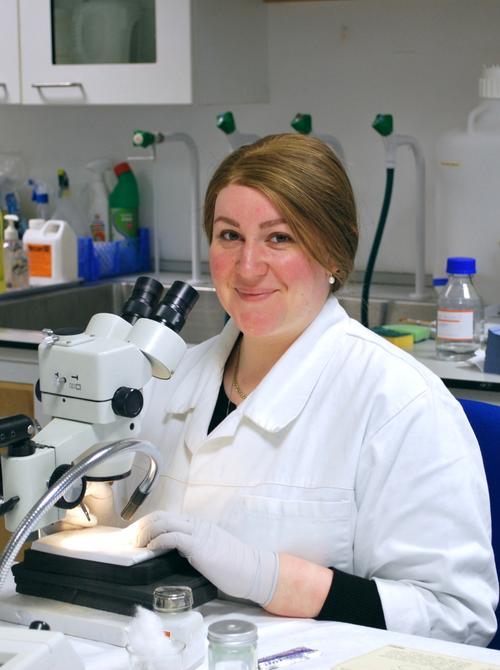
Settling in to professional life at RAMM, where I am responsible for interventive treatment of recently excavated archaeological material, preparation of museum objects for display, and remedial treatment of objects in permanent display and research collections.
...to Professional
In an example of perfect timing, RAMM advertised that they were looking for a project conservator in Spring 2022, a couple of months after I had graduated. I applied and threw myself into interview preparation, and I was overjoyed to join the RAMM team at the end of March 2022.
Since returning to the lab as a professional several things have changed. During my studies I was so focussed on absorbing and learning as much as possible about materials, deterioration processes, and ethical frameworks, that I didn’t realise how much my brain was being honed into a decision-making computer.
Being made to think through and justify every material and ethical decision I proposed as a student felt daunting at the time, but equipped me for the complex decision making expected of me as a professional.
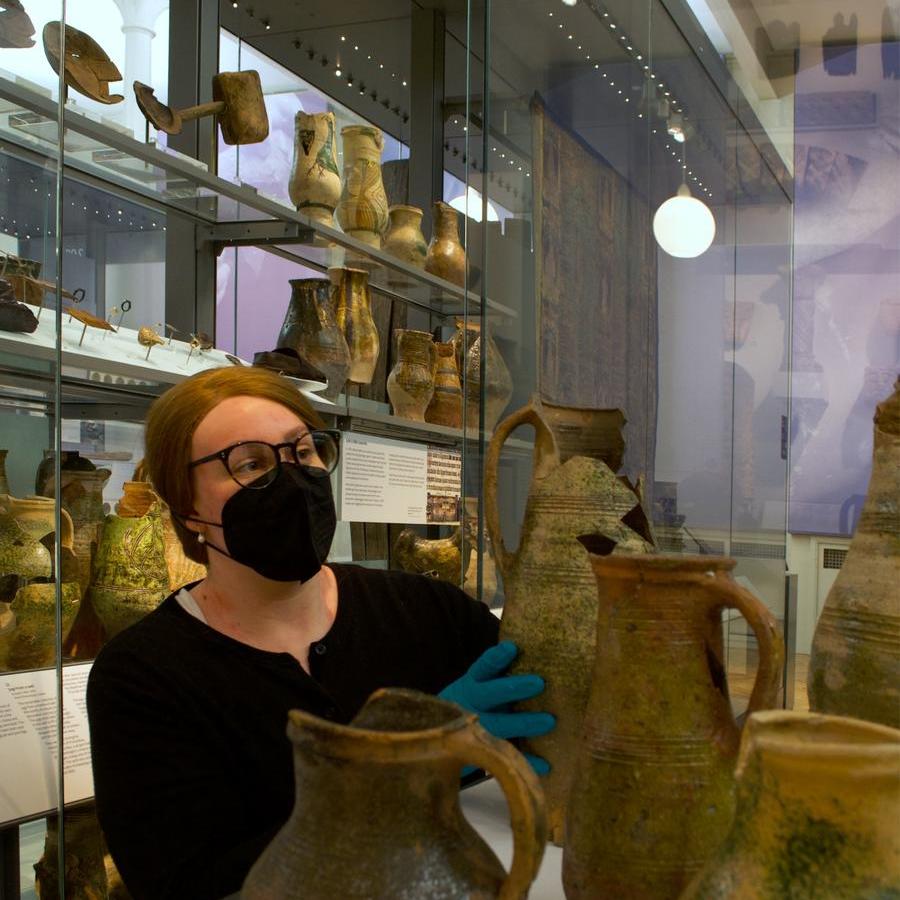
While I do draw on all the varied analytical and practical techniques I learned over my three years of training, decision making is the tool I rely on most in my professional practice across all objects and materials.
I have also adjusted to the different level of responsibility I have been given on coming back to the RAMM. As a student, your responsibility and autonomy in decision making is increased incrementally and your tutors and supervisors are very present in those processes. It is now an important part of my job description to be able to work independently and direct my work time and projects myself.
Something I am grateful to say hasn’t changed is the incredibly supportive atmosphere of the labs at RAMM, and the communication between colleagues which I believe is a backbone of the high standards of treatment we strive for. Another thing that has not changed is my commitment to equity and diversity in academia and research in general, and in the conservation field in particular.
When I first began this journey, I could not have guessed at all the opportunities I would be given to develop my skills and passion for this work.
Now though, as a professional conservator, I aim to ‘hold the door open’ behind me in turn, and fight to break down barriers for all.
You can connect with Kate on ResearchGate here.

